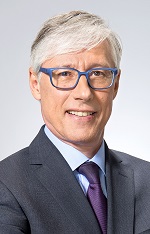 |
| Sanofi CEO Olivier Brandicourt |
Sanofi ($SNY) signed a deal worth up to $4.2 billion to get its hands on a trio of diabetes treatments from South Korean drugmaker Hanmi Pharmaceutical, filling out its pipeline as it contends with rivals Novo Nordisk ($NVO) and Eli Lilly ($LLY).
Under the agreement, Sanofi is paying Hanmi €400 million ($435 million) up front and promising €3.5 billion ($3.8 billion) in milestone payments in exchange for worldwide rights to three long-acting therapies. Leading the haul is efpeglenatide, a late-stage GLP-1 agonist designed to promote the body's natural production of insulin, followed by a weekly insulin analog and a fixed-dose combination of the two. Hanmi is in line for double-digit royalties on eventual sales, and the company has the right to co-commercialize each treatment in South Korea and China.
For Sanofi, the move is an effort to fortify its diabetes pipeline amid a global race for dominance in the field. The company's lead GLP-1 treatment, lixisenatide, is finally ready for FDA submission after years of delay, poised to enter a market now ruled by Novo's blockbuster Victoza and crowded with agents from Lilly, GlaxoSmithKline ($GSK) and AstraZeneca ($AZN). And Novo is moving through Phase III development with semaglutide, a weekly GLP-1 agent, and is finally back on track with a fixed-dose combination of long-acting insulin and Victoza.
Sanofi is coping with a sea change in diabetes that has its long-time cash cow, the insulin Lantus, ceding ground around the globe. Last week, the company revealed that it expects diabetes sales to slip about 7% in 2015 and decline well into 2018, as new products including the inhaled insulin Afrezza and Lantus heir Toujeo underperform expectations.
As for Hanmi, the company has becoming an increasingly popular partner for Western drugmakers looking to expand their pipelines. In March, Lilly agreed to pay Hanmi as much as $690 million for the rights to an early-stage autoimmune therapy tabbed for Phase II development. Four months later, Hanmi signed a $730 million deal with Boehringer Ingelheim to hand over a midstage cancer therapy.
- read the statement